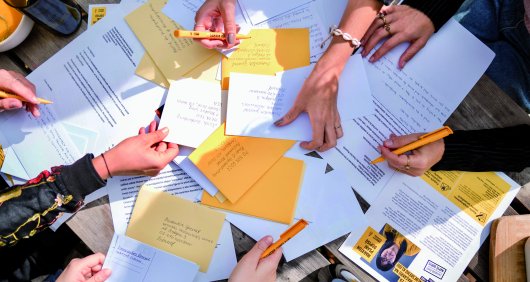Write For Rights 2024 - Human Rights Education Resources

Amnesty International’s “Write for Rights” campaign takes place annually around 10 December, which is Human Rights Day (marking the day when the Universal Declaration of Human Rights was adopted in 1948). Write for Rights aims to bring about change to the lives of people or communities that have suffered or are at risk of human rights violations.
Some 20 years ago, a small group of activists in Poland ran a 24-hour letter-writing marathon. Over the following years, the idea spread. Today, Write for Rights is the world’s biggest human rights event.
From 2,326 letters in 2001 to more than 6 million letters, tweets, petition signatures and other actions in 2023, people the world over have used the power of their words to unite behind the idea that geography is no barrier to solidarity. In 2023 alone, more than 1.4 million people were engaged through human rights education activities. Together, these individuals have helped transform the lives of more than 100 people over the years, freeing them from torture, harassment or unjust imprisonment.
The human rights education toolkit for this year’s Write for Rights campaign can help educators and participants to gain more understanding and build solidarity, preparing them to take action. These human rights education activities can take place in a variety of settings, such as a school classroom, a community group, a family or an activist group. As a facilitator, you can adapt the activity to best suit the needs and context of the group you are working with. For example, you may want to consider what knowledge the group already has about the issues discussed, the size and age range of your group and how to best organize the activity to allow for active participation, the physical setting of your activity, delivering it in-person or online and any limitations. When participants want to take action on a case, discuss with them whether it is safe for them to do so.
The activities are all based on participatory learning methods in which learners are not merely presented with information, they explore, discuss, analyze and question issues relating to the stories they will work with in each activity. This methodology allows participants to:
- develop key competencies and skills
- form their own opinions, raise questions, and gain a deeper understanding of the issues presented
- take control of their learning, and shapes discussions according to their interests, abilities and concerns
- have the space required for them to engage emotionally and develop their own attitudes